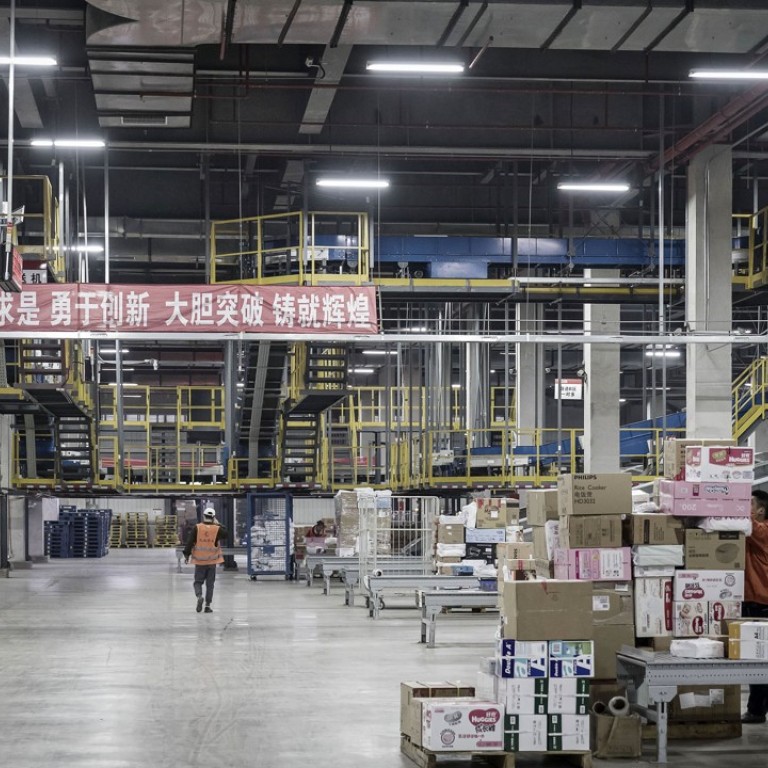
Vanke, Hopu lead US$11.6 billion management buyout of GLP, winning Asia’s largest takeover
A consortium led by China Vanke Co, Goldman Sachs’ former China chairman and Chinese fund Hillhouse Capital have won a management buyout to take over Global Logistics Properties Ltd., the largest operator of warehouses in China, in Asia’s biggest-ever private equity acquisition by value.
The Nesta Investment Holdings MidCo consortium will offer S$16 billion (US$11.6 billion), or S$3.38 cash per share, for control of Singapore-listed GLP, aiming to delist the company from the city’s bourse and take it private.
Vanke is the Nesta consortium’s largest shareholder, while the remaining members represent a balance of interests between GLP insiders comprising chief executive Ming Mei (梅志明), GLP director and Goldman’s former China chairman Fang Fenglei, and existing GLP shareholder Hillhouse. Bank of China Group Investment, the financial services unit of the country’s biggest overseas lender, owns the remaining 15 per cent.
The buyout has the support of GLP’s largest existing shareholder GIC, which is Singapore’s sovereign wealth fund, owning 36.8 per cent of the warehouse operator.
GLP, spun out from the former Asian business of the world’s biggest industrial real estate operator Prologis, was listed in Singapore in October 2010. The company’s shares had risen about 12 per cent since their listing, until GIC requested GLP to undertake a strategic operation at the start of 2017 to enhance shareholder value.
Since then, GLP shares had soared to become the best performing stock in Singapore on anticipation of the restructuring, jumping 21.9 per cent on Friday to a record S$3.29 after Nesta’s winning bid was announced.
Vanke’s shares rose 0.6 per cent to 24.59 yuan in Shenzhen and advanced 2.4 per cent in Hong Kong to HK$23.29 before they were halted pending the Nesta announcement.
“By being a major shareholder of GLP, Vanke expects to see significant synergy between the two companies,” the real estate developer’s chairman Yu Liang said in a statement. The deal will help Vanke to “improve its strategic layout in the logistics property sector as well as enhance its influence in the area,” he said.
Nesta beat out a rival group led by Warburg Pincus, in a buyout that generated some complaints from other potential bidders over the GLP management team’s access to privileged information, which may have given the Nesta consortium an advantage over other bidders. Warburg’s spokeswoman in Beijing could not be reached for comment.
The management-backed buyout is considered superior “due to price certainty, limited conditionality and a defined completion time frame,” GLP said in a statement. Nesta’s per-share offer was a 25 per cent premium to GLP’s closing price of S$2.70 before the winning bid was announced.
The transaction is expected to be completed on or before 14 April 2018. The privatisation, overseen by a special committee of GLP’s board and advised by JPMorgan, has set up a data room with more than 10,000 documents deposited, all available for short-listed bidders to view, according to GLP’s publicity team in Hong Kong.
GLP owns and manages logistics facilities such as warehouses, controlling 55 per cent share of China’s industry of modern logistics facilities, according to a 2015 report by Cushman & Wakefield. Operations are the foundation of its business model, though it has also expanded into warehouse development and fund management.
The China market has been the biggest revenue contributor for GLP, as it owns 17.5 million square meters of completed warehouse area. By June this year, as much as 57 per cent of the firm’s net asset value came from the Chinese market, while 26 per cent was from Japan, 9 per cent from the US and 8 per cent from Brazil.
Investors are heading to Chinese logistics sector as China is already the world’s largest e-commerce market, but the country “faces a shortage of modern warehouses,” said Elysia Tse, head of research and strategy for Asia Pacific at LaSalle Investment Management.
“The rental yield is very attractive, if you compared to investing in other commercial properties, around 6 per cent in prime market,” she said.
Alibaba Group Holdings, owner of the South China Morning Post and operator of the world’s largest online shopping platforms, is a GLP customer. Its Best Logistics unit leased 1.8 per cent of GLP’s total leasable area in the 2017 financial year, the second biggest customer behind only Amazon Inc, according to GLP’s data.



